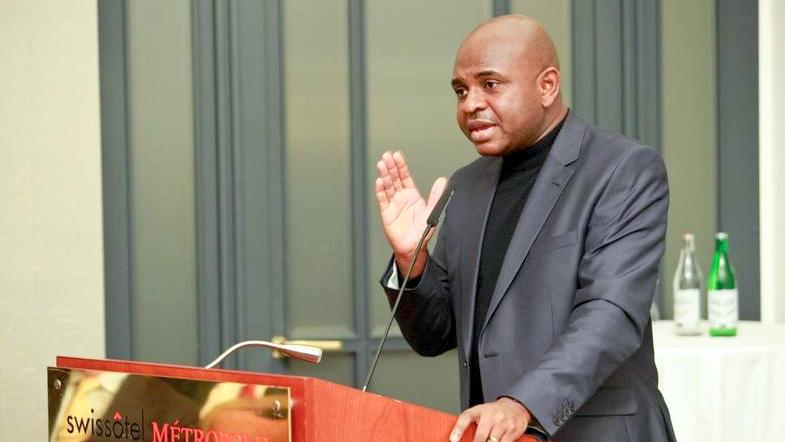There are no products in your shopping cart.
| 0 Items | £0.00 |


PRESIDENTIAL candidate Professor Kingsley Moghalu has criticised Igbo secessionist group the Indigenous People of Biafra (Ipob) ahead of Saturday’s governorship election in Anambra State saying their campaign is hurting Ndigbo nationally.
Anambrans go to the polls to elect a new governor this Saturday November 6 and Professor Charles Soludo, the All Progressives Grand Alliance (Apga) candidates appears to be the frontrunner. Over recent weeks, the campaign has been dominated by Ipob, who calls for Igbos to break away from Nigeria has been a recurring theme.
According to Professor Moghalu, the tactics used by Ipob harms the people of the southeast greatly, including their sit-at-home order. Every Monday, Ipob enforces a sit-at-home campaign across the southeast geo-political zone, which of late has become a problem as it is beginning to bite economically.
A former Central Bank of Nigeria (CBN) deputy governor, Professor Moghalu, said also accused the federal government of failing to handle the Ipob issue properly. He added that rather than rely on force, the government should opt for negotiation, while urging the people of the Anambra State to file out and perform their civic rights on Saturday.
Professor Moghalu said: “The complex problem of the Ipob sit-at-home order is a challenge but that’s why there is a heavy security presence. The Nigerian government has not handled the Ipob issue well, with its exclusive reliance on force instead of including dialogue among its options in what is essentially a political conflict that has turned into criminality.
“Even worse is the failure and illegitimacy of the region’s traditional political elite, who created a vacuum Ipob occupied but their tactics are harming the Igbo greatly. Say what anyone may, the violence, state of fear and staggering economic productivity losses, increase rather than reverse marginalisation and steals hope from the future of our young people in the region."